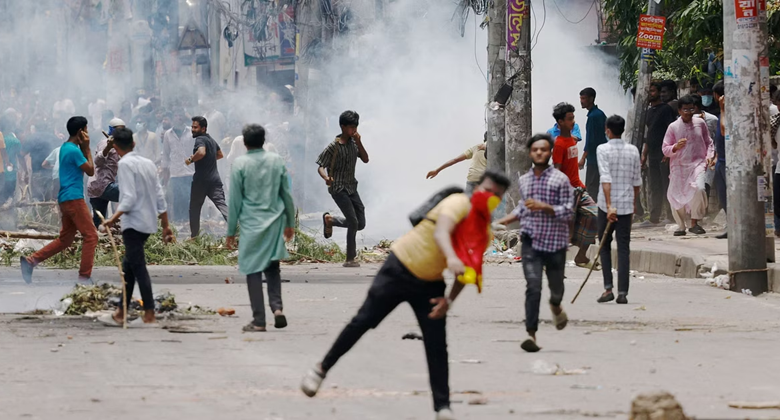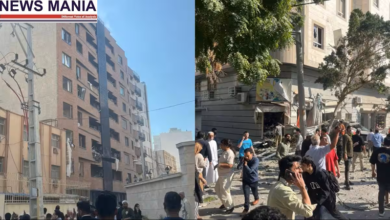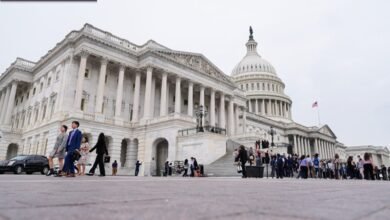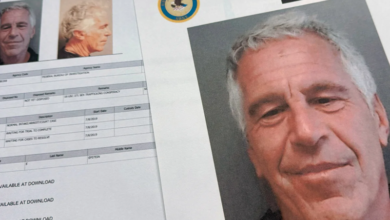Bangladesh Government Announces Nationwide Mourning Following Deadly Student Unrest Which killed 150

News Mania Desk/Agnibeena Ghosh/30th July 2024
The Bangladesh government has officially acknowledged the death toll from the recent student unrest, revealing that 150 people lost their lives in the violence. In response, the government has declared a nationwide day of mourning to honor the deceased.
The unrest, which began as protests against the job quota system, quickly escalated into widespread agitation against Prime Minister Sheikh Hasina and her administration. Universities and colleges across the country became epicenters of the protests, which later spread nationwide. The violence left several thousand individuals, including law enforcement officers, injured and caused significant damage to government properties.
In a press briefing, Cabinet Secretary Mahbub Hossain announced the government’s decision to observe a day of mourning. He urged citizens to wear black badges as a sign of respect for the victims. Additionally, places of worship, including mosques, temples, pagodas, and churches, were asked to offer prayers for the deceased and the injured.
Home Minister Asaduzzaman Khan Kamal presented a report at a meeting chaired by Prime Minister Hasina, confirming the fatalities. This announcement coincided with a significant military and paramilitary presence in Dhaka, where security forces patrolled the streets to prevent further violence. Despite the heavy security, a faction of protesting students called for renewed demonstrations after six student leaders, allegedly coerced in police custody, announced the withdrawal of the protests.
The Supreme Court of Bangladesh had earlier ordered a substantial reform of the quota system, reducing reserved posts from 56% to 7%. Following this order, the government issued a notification stating that 93% of jobs would now be open to candidates based on merit. This move was initially met with approval from some student leaders, who called for the reopening of educational institutions.
However, other students claimed their leaders’ withdrawal announcement was made under duress. They continued to demand the release of detained leaders, a public apology from the prime minister for the casualties, the dismissal of several ministers, and the reopening of schools and universities. These demands were largely ignored by the government, which led to sporadic street protests that were quickly dispersed by the police.
The unrest, which began in mid-July, prompted the government to impose a nationwide curfew and deploy the army to support police and paramilitary forces. Media reports indicate that the violence has resulted in over 200 deaths across the country. The “Prothom Alo” newspaper reported 210 fatalities, including 113 children. The unrest also led to the arrest of approximately 9,000 individuals.
Observers and political commentators noted that the student protests were initially peaceful until they were allegedly hijacked by ruling party activists and opposition-backed groups. The government accused the Jamaat-e-Islami party and the opposition Bangladesh Nationalist Party (BNP) of instigating the violence to create nationwide chaos.
The economic impact of the unrest has been significant. The Foreign Investors Chamber of Commerce and Industries estimated the losses at around USD 10 billion, with the garment industry alone incurring losses of 6.4 billion Bangladeshi Taka. The unrest also led to a 10-day internet shutdown, which disrupted online businesses, particularly those relying on social media platforms like Facebook.






